Behavioral and Biological Sciences Faculty Kudos
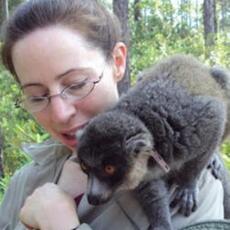
Francine Dolins with a
brown lemur
February 2022: Psychology Associate Professor Francine Dolins' newest book publication with Cambridge University Press, Spatial Analysis in Field Primatology: Applying GIS at Varying Scales, received Choice Reviews’ "Outstanding Academic Title." The Choice Reviews awards list is released annually and represents the best in scholarly publications from among the more than 3,600 titles reviewed and 17,000-plus titles submitted. Dolins was the lead editor on the book, which is the third edited volume Dolins has published with Cambridge University Press.
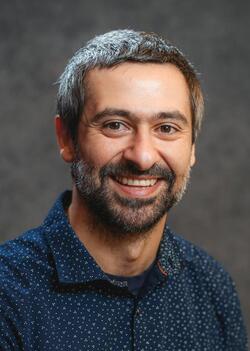
John Abramyam
November 2021: One modern-day frog has a full set of teeth — the Guenther’s marsupial frog. But more than 200 million years ago, its frog ancestors lost the teeth in their lower jaws. In a Nov. 10 National Geographic article — "This mysterious frog re-evolved a full set of teeth" — Biology Assistant Professor John Abramyan was asked about this since he has done research about the gene coding for tooth enamel in toads, which lost their teeth around 60 million years ago. "These genes are essentially jobless" and nonfunctional, Abramyan said in the article. “[But] since most frogs still produce teeth in their upper jaws, they theoretically have all the tools to make a functional tooth, so it’s less of an evolutionary leap.”

Nancy Wrobel
September 2021: Psychology Professor Nancy Wrobel is the 2021 recipient of the American Arab, Middle Eastern, and North African Psychological Association (AMENA-Psy) Distinguished Contribution to Psychological Scholarship Award. Wrobel’s scholarship and research contributions toward helping Arab/MENA populations stood out as particularly significant and innovative to the national organization’s award selection committee. Wrobel's research interests focus on assessment and diagnostic decisions across cultural groups. Her published research includes validation of Arabic versions of mental health and dementia screening instruments, as well as acculturative stress measures. She’s also written about mental health risks and trauma in Arab Americans.
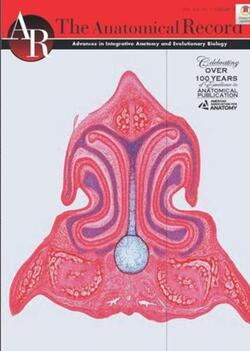
February 2021: Not only did Biology Assistant Professor John Abramyan and his lab assistant Raana Ali get their work published in The Anatomical Record, they also had their lab image featured on the February 2021 cover.
For their paper, “Novel insights into the development of the avian nasal cavity,” Ali captured a microscopic anatomy image that looks through the upper beak of a chicken embryo. “She spent countless hours in the lab optimizing the decalcification of the bone in the beak so she could section it properly, using fabric softener of all things. The end result was a pretty amazing image,” Abramyan said. Ali graduated from UM-Dearborn and is now in medical school at Michigan State University.
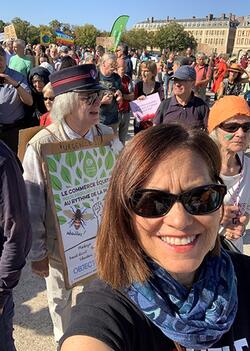
October 2020: To better understand why some women persist in STEM fields while others leave, Biology Professor Marilee Benore is traveling the world to collect oral histories from female researchers, scientists, lab directors and more. Her co-researcher is Rana Dajani, a professor at Hashemite University in Jordan. The American Society for Biochemistry and Molecular Biology magazine featured Benore and this work in the Oct. 22 article, “What is success for women in STEM? “Self-efficacy is linked to success, and role models and stories are linked to self-efficacy. My early data indicate that over 80% of the women respondents rated stories about women as significant or important to them,” Benore said in the article. “I want to continue to conduct surveys and oral histories, find the threads of persistence, and share the stories so others can gain from the insight and experiences of successful women.”
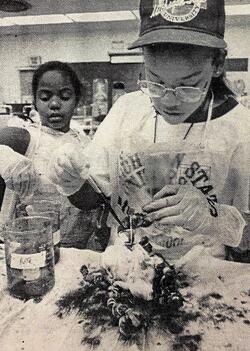
Back in July 1991, UM-Dearborn hosted a week-long summer Girl Scouts camp — “Lab Coats and Microscopes” — where the scouts made terrariums and compost piles, had a nighttime starwatch using campus telescopes, and grew bacteria and cultured yogurt. The camp, led by Biology Professor Marilee Benore, was created so girls could meet female scientists and be encouraged to consider STEM careers. Scouts were in the classrooms, spent time in labs, and walked the campus grounds. In this photo, Girls Scouts Carmen Russell and Erica Mauter are taking dye they previously extracted from natural sources found on the campus grounds to tie-dye T-shirts. Mauter, pictured right, later graduated from U-M with a chemical engineering degree. (Photo courtesy of Dearborn Press & Guide. Thank you to Professor Benore for providing information.)
